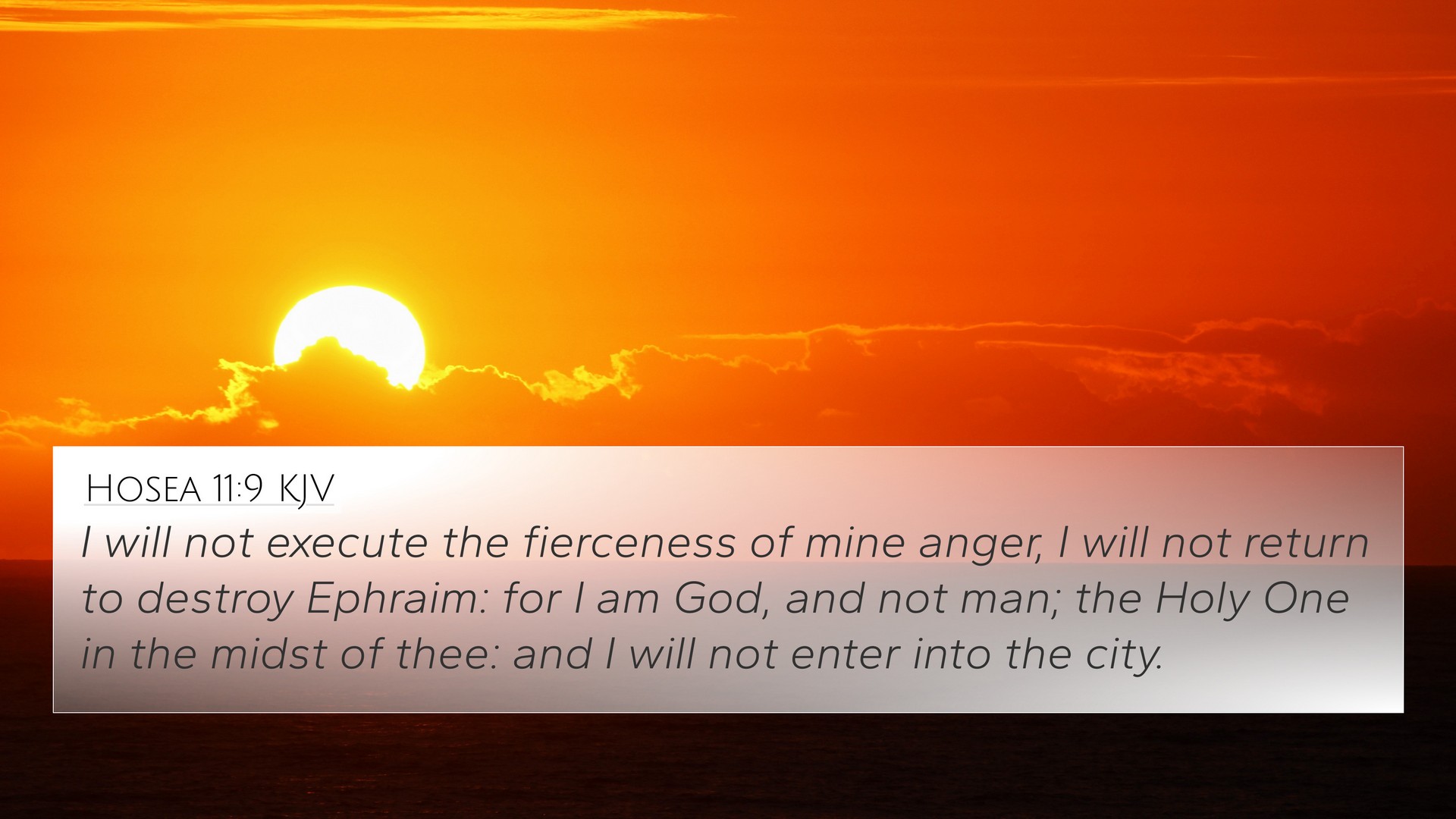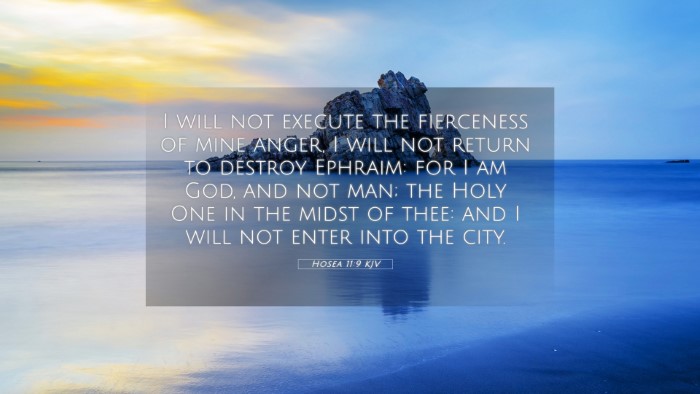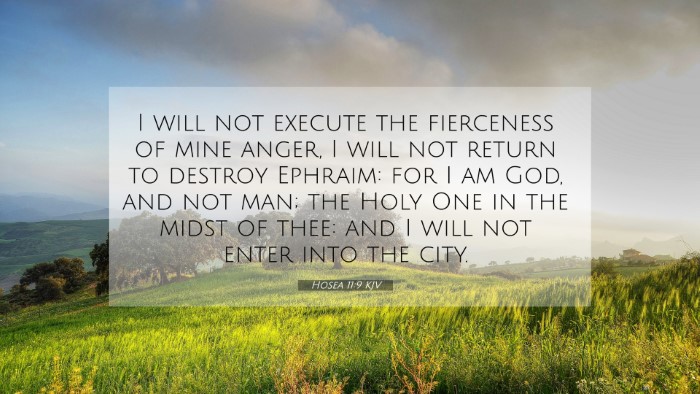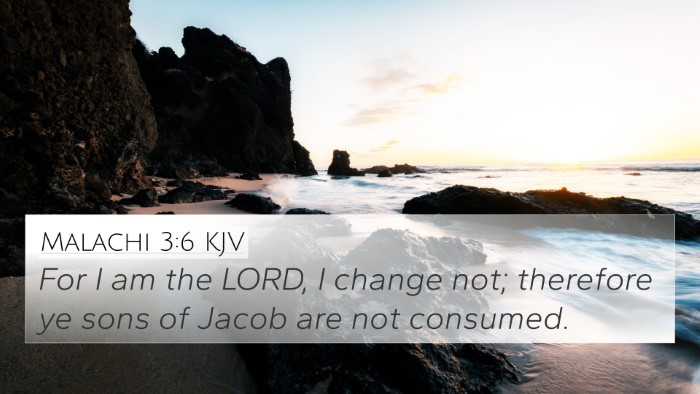Old Testament
Genesis Exodus Leviticus Numbers Deuteronomy Joshua Judges Ruth 1 Samuel 2 Samuel 1 Kings 2 Kings 1 Chronicles 2 Chronicles Ezra Nehemiah Esther Job Psalms Proverbs Ecclesiastes Song of Solomon Isaiah Jeremiah Lamentations Ezekiel Daniel Hosea Joel Amos Obadiah Jonah Micah Nahum Habakkuk Zephaniah Haggai Zechariah MalachiHosea 11:9 Similar Verses
Hosea 11:9 Cross References
I will not execute the fierceness of mine anger, I will not return to destroy Ephraim: for I am God, and not man; the Holy One in the midst of thee: and I will not enter into the city.
Uncover the Rich Themes and Topics of This Bible Verse
Listed below are the Bible themes associated with Hosea 11:9. We invite you to explore each theme to gain deeper insights into the Scriptures.
Hosea 11:9 Cross Reference Verses
This section features a detailed cross-reference designed to enrich your understanding of the Scriptures. Below, you will find carefully selected verses that echo the themes and teachings related to Hosea 11:9 KJV. Click on any image to explore detailed analyses of related Bible verses and uncover deeper theological insights.
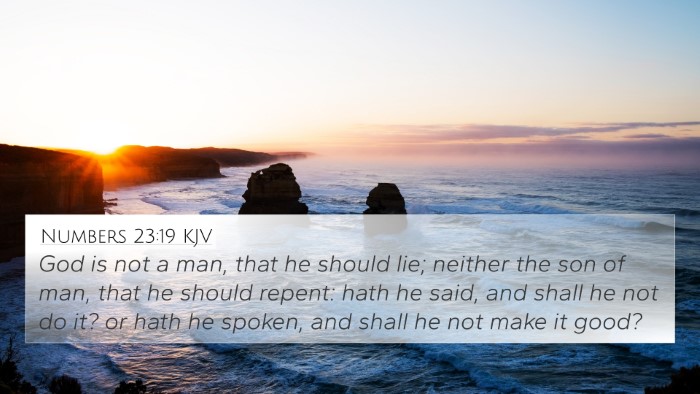
Numbers 23:19 (KJV) »
God is not a man, that he should lie; neither the son of man, that he should repent: hath he said, and shall he not do it? or hath he spoken, and shall he not make it good?
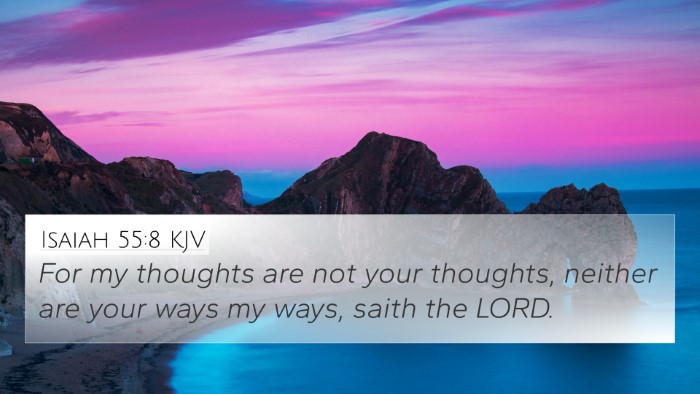
Isaiah 55:8 (KJV) »
For my thoughts are not your thoughts, neither are your ways my ways, saith the LORD.
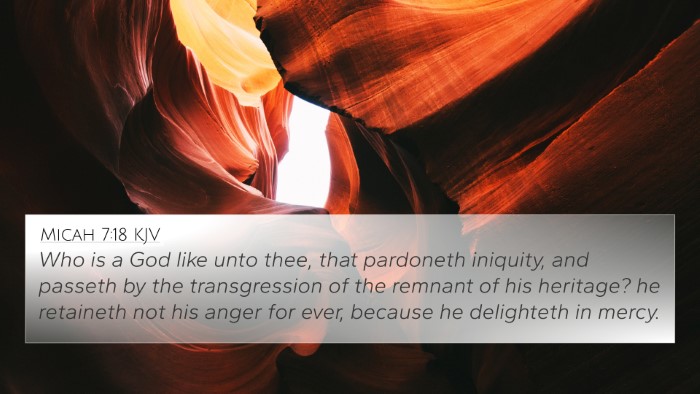
Micah 7:18 (KJV) »
Who is a God like unto thee, that pardoneth iniquity, and passeth by the transgression of the remnant of his heritage? he retaineth not his anger for ever, because he delighteth in mercy.
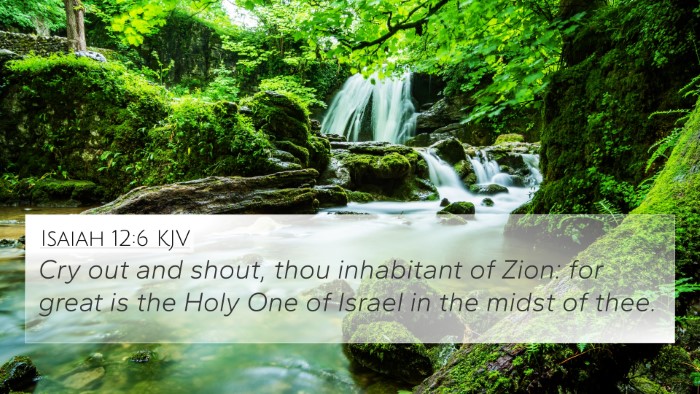
Isaiah 12:6 (KJV) »
Cry out and shout, thou inhabitant of Zion: for great is the Holy One of Israel in the midst of thee.
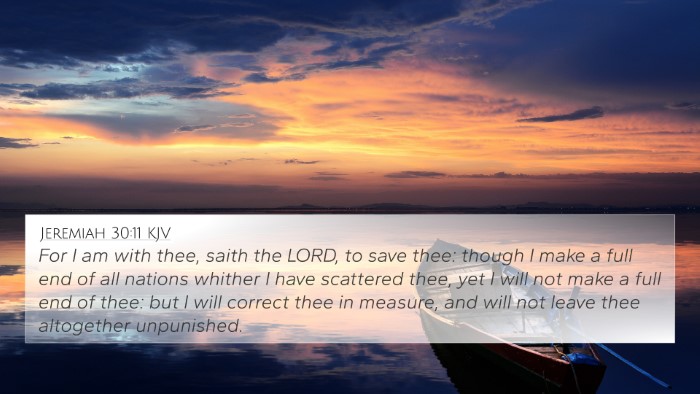
Jeremiah 30:11 (KJV) »
For I am with thee, saith the LORD, to save thee: though I make a full end of all nations whither I have scattered thee, yet I will not make a full end of thee: but I will correct thee in measure, and will not leave thee altogether unpunished.
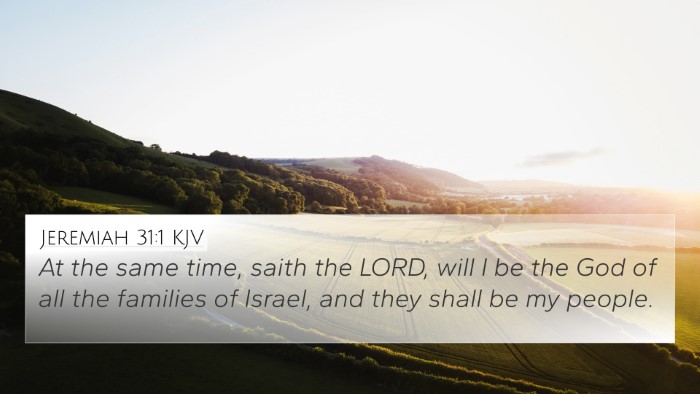
Jeremiah 31:1 (KJV) »
At the same time, saith the LORD, will I be the God of all the families of Israel, and they shall be my people.
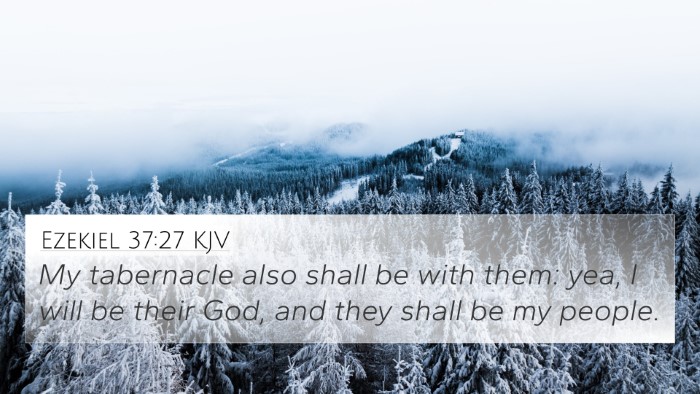
Ezekiel 37:27 (KJV) »
My tabernacle also shall be with them: yea, I will be their God, and they shall be my people.
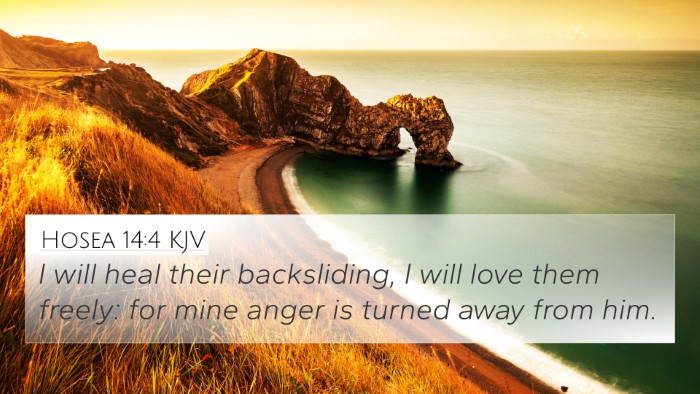
Hosea 14:4 (KJV) »
I will heal their backsliding, I will love them freely: for mine anger is turned away from him.
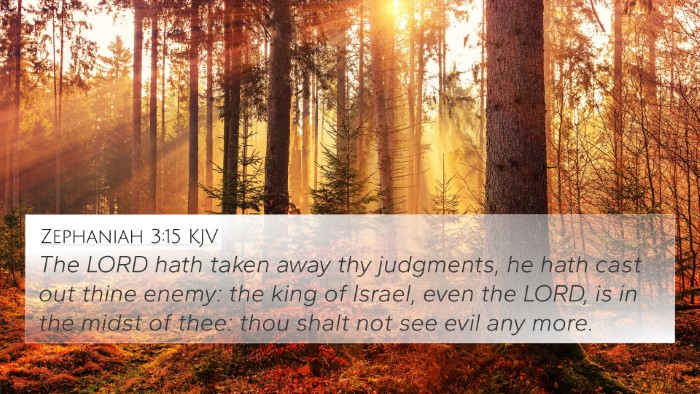
Zephaniah 3:15 (KJV) »
The LORD hath taken away thy judgments, he hath cast out thine enemy: the king of Israel, even the LORD, is in the midst of thee: thou shalt not see evil any more.

Romans 11:28 (KJV) »
As concerning the gospel, they are enemies for your sakes: but as touching the election, they are beloved for the father's sakes.
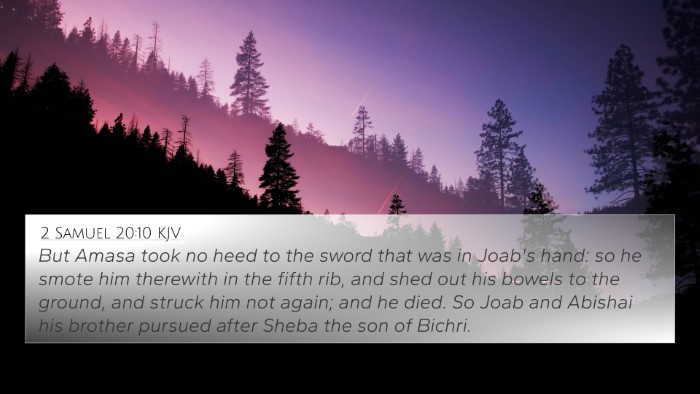
2 Samuel 20:10 (KJV) »
But Amasa took no heed to the sword that was in Joab's hand: so he smote him therewith in the fifth rib, and shed out his bowels to the ground, and struck him not again; and he died. So Joab and Abishai his brother pursued after Sheba the son of Bichri.
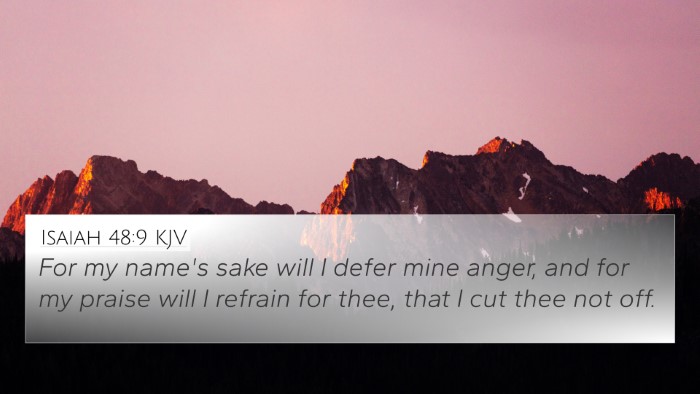
Isaiah 48:9 (KJV) »
For my name's sake will I defer mine anger, and for my praise will I refrain for thee, that I cut thee not off.
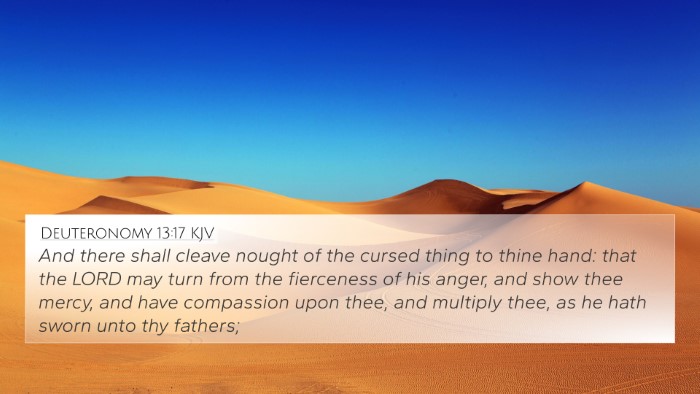
Deuteronomy 13:17 (KJV) »
And there shall cleave nought of the cursed thing to thine hand: that the LORD may turn from the fierceness of his anger, and show thee mercy, and have compassion upon thee, and multiply thee, as he hath sworn unto thy fathers;
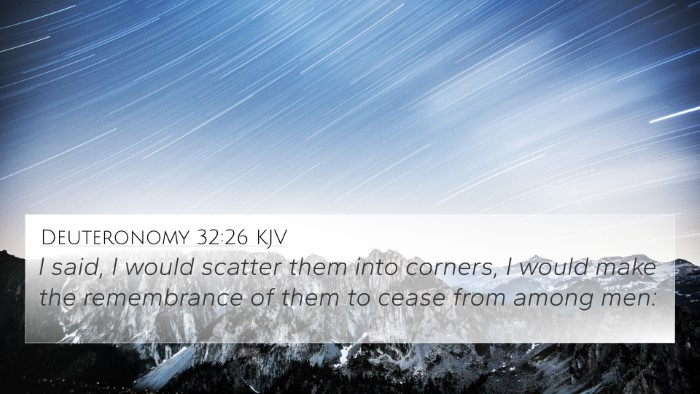
Deuteronomy 32:26 (KJV) »
I said, I would scatter them into corners, I would make the remembrance of them to cease from among men:
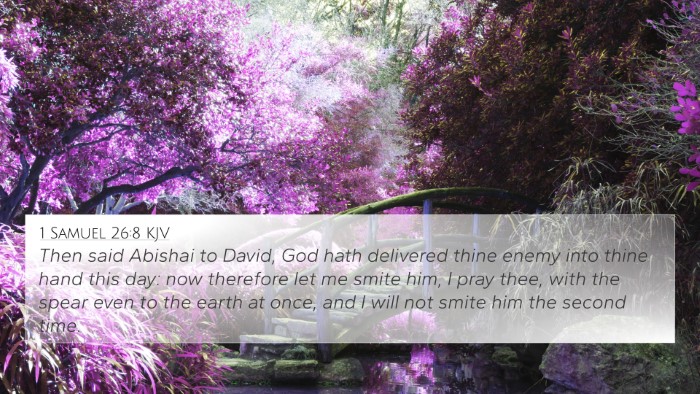
1 Samuel 26:8 (KJV) »
Then said Abishai to David, God hath delivered thine enemy into thine hand this day: now therefore let me smite him, I pray thee, with the spear even to the earth at once, and I will not smite him the second time.
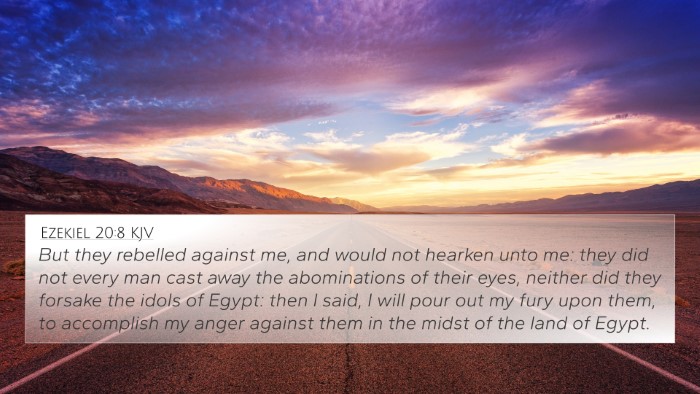
Ezekiel 20:8 (KJV) »
But they rebelled against me, and would not hearken unto me: they did not every man cast away the abominations of their eyes, neither did they forsake the idols of Egypt: then I said, I will pour out my fury upon them, to accomplish my anger against them in the midst of the land of Egypt.
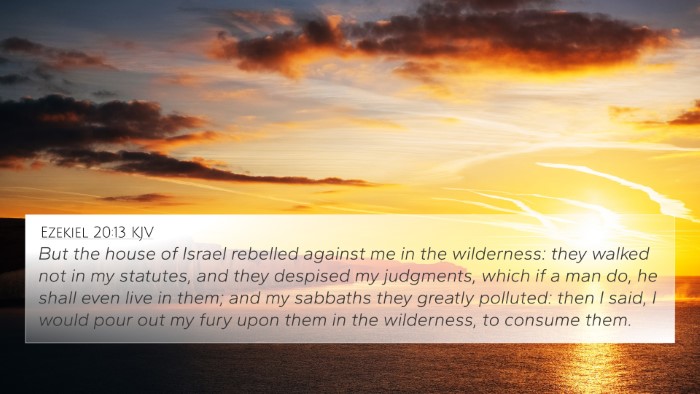
Ezekiel 20:13 (KJV) »
But the house of Israel rebelled against me in the wilderness: they walked not in my statutes, and they despised my judgments, which if a man do, he shall even live in them; and my sabbaths they greatly polluted: then I said, I would pour out my fury upon them in the wilderness, to consume them.
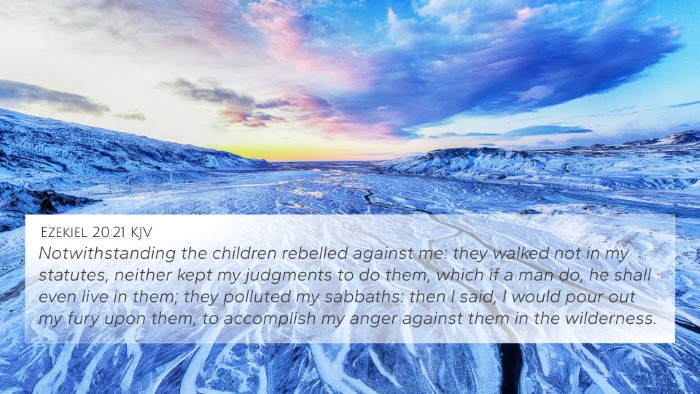
Ezekiel 20:21 (KJV) »
Notwithstanding the children rebelled against me: they walked not in my statutes, neither kept my judgments to do them, which if a man do, he shall even live in them; they polluted my sabbaths: then I said, I would pour out my fury upon them, to accomplish my anger against them in the wilderness.

Psalms 78:38 (KJV) »
But he, being full of compassion, forgave their iniquity, and destroyed them not: yea, many a time turned he his anger away, and did not stir up all his wrath.
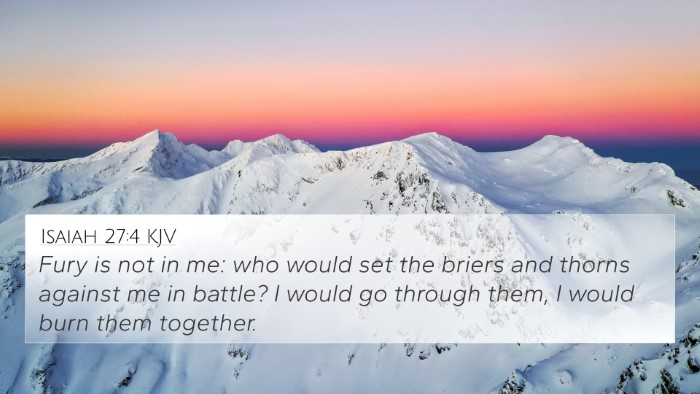
Isaiah 27:4 (KJV) »
Fury is not in me: who would set the briers and thorns against me in battle? I would go through them, I would burn them together.
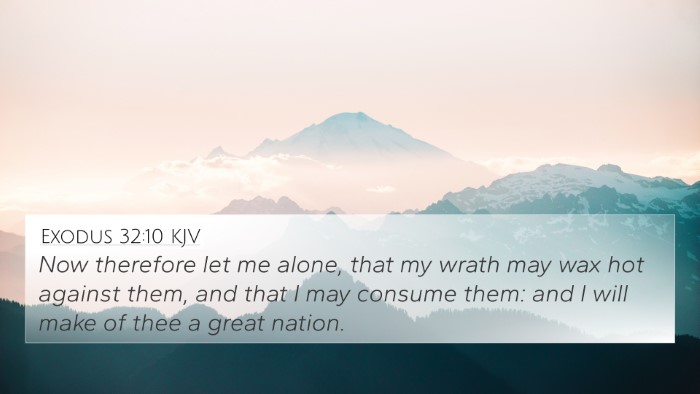
Exodus 32:10 (KJV) »
Now therefore let me alone, that my wrath may wax hot against them, and that I may consume them: and I will make of thee a great nation.
Hosea 11:9 Verse Analysis and Similar Verses
The Meaning of Hosea 11:9
Hosea 11:9 reads: “I will not execute the fierceness of my anger; I will not return to destroy Ephraim: for I am God, and not man; the Holy One in the midst of thee: and I will not come in wrath.” This verse captures the essence of God's mercy and compassion contrasted against His divine righteousness. It reveals profound insights into the character of God and His intentions towards His people.
Insights from Commentaries
This analysis will draw from public domain commentaries such as those by Matthew Henry, Albert Barnes, and Adam Clarke, providing a well-rounded understanding.
Matthew Henry's Commentary
Matthew Henry emphasizes the tenderness of God’s heart. Despite the people's persistent sins, God expresses love and a desire for reconciliation. Henry notes that while God could rightfully unleash wrath, He chooses mercy. He explains how God’s divine nature transcends human emotions, indicating that He is not swayed by anger like humans but governs from a place of compassion.
Albert Barnes' Commentary
Albert Barnes highlights the phrase "for I am God, and not man," explaining that this distinction represents the infinite and unchanging nature of God, contrasting with human beings who often act out of impulse and anger. Barnes stresses that God’s refusal to fully enact judgment demonstrates both His holiness and His commitment to redemption. This demonstrates God's nature as a loving Father, preferring restoration over destruction.
Adam Clarke's Commentary
Adam Clarke brings out the significance of God being "the Holy One in the midst of thee." Clarke notes that God’s presence among His people reflects His desire for a close relationship. Although the people deserve punishment, He refrains from destruction, highlighting the grace that characterizes God’s dealings with humanity. Clarke posits that the verse assures believers of God's unwavering love and patience despite their failures.
Thematic Connections and Cross-References
The verse in Hosea 11:9 is richly connected to various themes throughout the Scriptures, as well as to numerous other verses that echo its messages of mercy, compassion, and divine authority. Here are some significant cross-references:
- Exodus 34:6-7: This passage portrays God as merciful and gracious, abounding in steadfast love.
- Isaiah 55:7: Calls people to return to the Lord, highlighting His readiness to pardon and forgive.
- Jeremiah 31:20: God expresses compassion for Ephraim, showcasing His intent for restoration.
- Romans 5:8: Refers to God demonstrating His love through Christ even while we were still sinners.
- 1 John 4:8: Declares that God is love, further displaying His nature in the relational aspect with humanity.
- Lamentations 3:22-23: Emphasizes God’s compassion and faithfulness, renewing hope each day.
- Psalm 103:8-10: Illustrates God's merciful character, not dealing with us according to our sins.
Understanding the Importance of Cross-Referencing
Utilizing cross-referencing techniques enhances the study of Scripture, revealing intricate connections and deeper meanings. Here are some tools and methods for effective Bible cross-referencing:
- Bible Concordance: A comprehensive index that helps locate words and their occurrences throughout the Bible.
- Bible Cross-reference Guide: Provides a systematic approach to exploring related verses.
- Cross-reference Bible Study: Involves examining related scriptures to facilitate understanding of a particular theme or doctrine.
- How to Use Bible Cross-references: Learning the methodology behind linking scriptures enhances Biblical interpretation.
The Importance of Thematic Bible Verse Connections
Making thematic connections between verses can lead to rich insights. For instance, understanding the theme of God's mercy in Hosea 11:9 can provide a lens through which to view many other scriptures that emphasize God's grace and loving-kindness.
Inter-Biblical Dialogue
Engaging with scripture through cross-references invites a dialogue not just within the text of the Bible, but also between the Old and New Testaments. By understanding God’s indication of mercy in Hosea and recognizing its manifestation in Christ’s sacrificial love, readers can glean a fuller picture of God's unified message throughout both Testaments.
Conclusion
Hosea 11:9 is a profound verse reflecting God’s mercy and patience toward His people. Understanding this verse through the lens of public domain commentaries and cross-referencing related scriptures can significantly enrich one's understanding of Biblical themes. The study of scripture is enhanced when we acknowledge the interconnectedness of verses, leading to a deeper appreciation of God’s unwavering love and grace.
